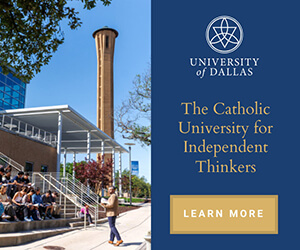If God loves human life into existence, it “must be respected and protected absolutely from the moment of conception. From the first moment of his existence, a human being must be recognized as having the rights of a person” (CCC 2270). This is why “Direct abortion…willed either as an end or a means, is gravely contrary to the moral law” (CCC 2271). While not directly intended, most contraceptives also provoke micro-abortions, contrary to God’s merciful life.
St. John Paul II encouraged us to be understanding of pregnant women who feel abandoned, pressured, with seemingly no other recourse than the painful decision to abort their child (see Evangelium Vitae, 59). While she—along with her child’s father, the legislators and doctors who legalized or performed abortion—must repent of their responsibility of this grave sin in the Sacrament of Forgiveness, the church instructs her priests to be merciful in Confession to lift the excommunication for cooperating in an abortion. The Church also sponsors programs for women in crisis pregnancies as well as for women seeking spiritual and psychological healing from the trauma of abortion. Let us pray for a prompt end to abortion.
Since it must be treated from conception as a person, the embryo must be defended in its integrity, cared for, and healed, as far as possible, like any other human being. Prenatal diagnosis is morally licit, “if it respects the life and integrity of the embryo and the human fetus and is directed toward its safety or healing…: a diagnosis must not be the equivalent of a death sentence” (CCC 2274, quoting Donum Vitae).
God also loves human life until its natural end. Euthanasia, any “act or omission which, of itself or by intention, causes death in order to eliminate suffering… [is] gravely contrary to the dignity of the human person and to the respect due to the living God, his Creator… [It] must always be forbidden and excluded” (CCC 2277).
The Church says that it is legitimate to refuse or discontinue “medical procedures that are burdensome, dangerous, extraordinary, or disproportionate to the expected outcome… Here one does not will to cause death; one’s inability to impede it is merely accepted” (CCC 2278). Ordinary care (nutrition, hydration, hygiene, warmth, etc.) and palliative care (using drugs to alleviate suffering, especially for the dying) are true acts of charity that must never be interrupted (see CCC 2279). Even if painkillers risks shortening the dying person’s life, death itself is not willed as an end or as a means, but is only tolerated as an inevitable and unavoidable consequence of that care (see ibid.).
When we are confronted with these difficult decisions, let us seek competent advice.
The dying should be given attention and care to help them live their last moments in dignity and peace. They will be helped by the prayer of their relatives, who must see to it that the sick receive at the proper time the sacraments that prepare them to meet the living God. (CCC 2299)
Meekness for human life is also expressed in the seven Corporal Works of Mercy: feeding the hungry; giving (clean) water to drink to the thirsty; clothing the naked; sheltering the homeless; visiting and accompanying the sick; visiting the imprisoned; burying the dead. Care for the spiritual health and well-being of souls is expressed in the seven Spiritual Works of Mercy: praying for the living and the dead; counseling the doubtful; comforting the afflicted; instructing the ignorant; bearing wrongs patiently; admonishing sinners, and forgiving the offenses of others. Pope Francis links these to meekness:
Paul speaks of meekness as one of the fruits of the Holy Spirit (see Galatians 5:23). He suggests that, if a wrongful action of one of our brothers or sisters troubles us, we should try to correct them, but “with a spirit of meekness,” since “you too could be tempted” (Galatians 6:1). Even when we defend our faith and convictions, we are to do so “with meekness” (see 1 Peter 3:16). Our enemies too are to be treated “with meekness” (2 Timothy 2:25). In the Church we have often erred by not embracing this demand of God’s word (Gaudete et exsultate 73).


